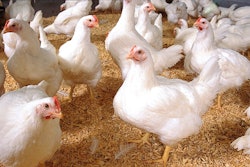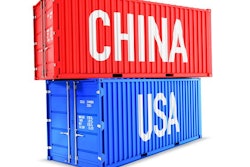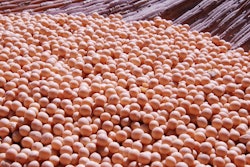
Trump Threatens with Higher Tariffs Absent a Trade Deal
The battle continues as both parties have yet to come to a Phase One agreement.
On Tuesday, President Trump stated tariffs on Chinese imports would be raised if no deal is reached to end the trade war.
The next round of tariffs are scheduled to start in mid-December.
It is unclear if Trump’s comments are in addition to the next round of tariffs of whether the December tariffs would be triggered.
While China and the U.S. remain in discussions, there still are major elements not agreed on: how/when to reduce tariffs and how much U.S. agricultural product China would buy.
Lean hog futures have been declining recently on uncertainty between the two countries.
FBN’s Take On What It Means: The absence of a trade deal and the lingering hopes of securing one are weighing on markets including cotton, soybeans, and lean hogs. FBN is not optimistic that the entire war will be over soon even if a Phase One deal is reached in the coming month before the next round of tariffs sets in. With an election coming up for the U.S., China could want to delay finalization on hopes that a different president is elected.
South Korea/U.S. Rice Deal, Philippines Halt Rice Imports
South Korea has agreed to provide access for 132,304 tonnes of U.S. rice annually.
South Korea also agreed to further disciplines regarding transparency and predictability when tendering for U.S. rice.
South Korea has a 408,700 tonnes tariff rate quota for rice imports with a 5% in-quota duty and a 513% above-quota duty.
Of the total, 388,700 tonnes of rice is allocated to specific countries including the U.S., Australia, China, Thailand, Vietnam with a remaining 20,000 tonnes administered on a global basis via tenders.
This is set to take effect January 1.
For the Philippines, Duterte has ordered a stop to rice imports amid falling interior prices and harvest season approaching.
The Philippines typically imports rice from Thailand and Vietnam with this year’s imports totaling nearly three million tonnes, which is high.
FBN’s Take On What It Means: While the agreement is most welcome for West Coast rice producers, the agreement will do little for long grain rice producers, located primarily in the Delta. South Korea typically purchases medium and short grain brown rice. Most of that rice is grown in California. Although cash prices in those areas may react, futures are not sensitive to the news. What is encouraging is that the U.S. is continuing to work on trade deals for agricultural producers. The change in policy for the Philippines will not have a direct impact for U.S. long grain producers either.
The risk of trading futures, hedging, and speculating can be substantial. FBN BR LLC (NFA ID: 0508695)









